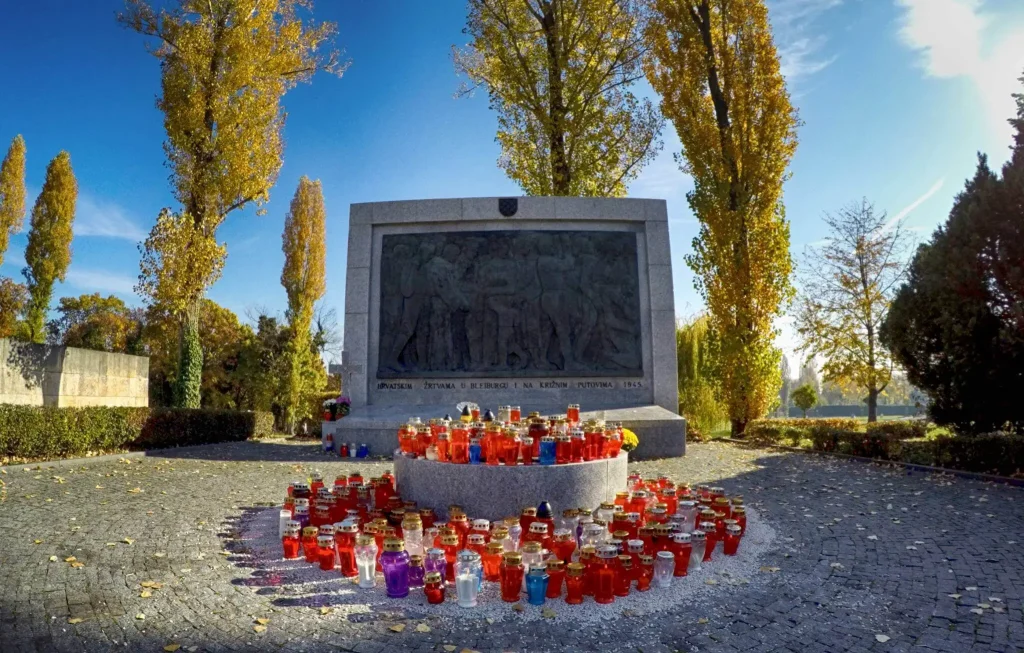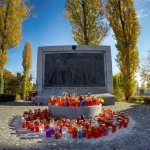As part of this year’s commemorative events, a mass will be served at the parish church in Bleiburg, Austria, at 6 pm today, and Croatia’s Ambassador to Austria will lay a wreath there. The memorial service in “Hl. Petrus und Paulus” church in Bleiburg will be said in Croatian.
The central commemoration, including the laying of wreaths and Catholic and Muslim prayers, will take place at Zagreb’s central cemetery on Saturday, after which mass will be celebrated at the Shrine of Croatian Martyrs in Udbina, some 140 kilometres south of Zagreb.
On 25 May, a commemorative gathering is scheduled to take place in the State Archive. On 29 May, Catholic memorial services will be held for the victims of the Bleiburg tragedy at Radimlja, Stolac, southern Bosnia and Herzegovina.
Since 1995, with a few interruptions during the SDP government in Croatia, the commemorations in the Loibach field near Bleiburg, in the southern region of Carinthia, have been held in tribute to tens of thousands of Croatian civilians and soldiers of the defeated pro-Nazi Independent State of Croatia (NDH) who surrendered to allied forces there in May 1945, but were handed over by British troops to Yugoslav forces. Some were executed on the spot, while many perished during so-called death marches back to Yugoslavia in the second half of 1945.
In 2020, Austrian parliamentarian parties requested an expert opinion on whether such gatherings in the Loibach field could pass the test of constitutionality.
A task force consisting of historians, jurists and Catholic Church representatives as well as local officials in that Austrian province concluded that such gatherings should no longer be held in Bleiburg.
The commission was set up in 2020 in accordance with the decision of the parliamentary parties ÖVP, SPÖ, the Greens and Neos, and the decision of that think tank was prompted by discussion on the political dimension of the commemorations in recent years.
In 2019 the Catholic Diocese in Klagenfurt withheld permission for a mass to be said by someone of the bishop’s rank. The Roman Catholic Church in Carinthia turned down the request by the Croatian Catholic Bishops’ Conference to hold mass at Loibach, claiming the event was used for political purposes.
On 22 March 2019, the president of the Austrian Bishops’ Conference, Cardinal Christoph Schoenborn, said Austria and Croatia should jointly deal with the historical issue of Bleiburg.
“I think we need a culture of dealing with history,” the Archbishop of Vienna said after a meeting of the country’s Bishops’ Conference.
The cardinal said it would be good to form a joint commission that would deal with Bleiburg’s “complicated history.” “I think we need something like that, otherwise we will stay at the level of conflict,” he added.
He concluded that for now Austria saw only a “fascist gathering” occurring at Bleiburg, while Croatia’s focus was on the painful history of ancestors, the Austrian news agency APA quoted him as saying on that occasion. “Bleiburg symbolises a very painful period in the history of the Croatian people, with many thousands dead,” he said.
Croatia protests to Austria over removal of historical coat of arms
On 5 May this year, the Croatian Ministry of Foreign and European Affairs lodged a protest note with Austria over the removal of the historical Croatian coat of arms from the monument commemorating Croats killed at Bleiburg in May 1945.
The monument is located on the private property of an Austrian association, the Bleiburg Guard of Honour, and the reasons for the removal of the coat of arms given by the Völkermarkt municipal administration “are unacceptable to Croatia from both the historical and the social and political point of view,” the Croatian ministry said in a statement.
As regards commemorations held at Bleiburg, the ministry said that they must be dedicated solely to the memory of those killed and held as part of Requiem Mass for the thousands of civilian victims.
The Bleiburg Guard of Honour has removed the disputed inscription to avoid any connection between the inscription and the coat of arms, the statement said.
The protest note says that “the coat of arms itself was for centuries a constituent part of the heraldry of the Habsburg Monarchy and as such often displayed on various historical buildings and in historical documents, hence it does not and cannot have unconstitutional connotations.”
The ministry also noted that “declaring the historical Croatian coat of arms a fascist symbol has done undue harm to the reputation of Croatia and the Croats living and working in Austria, and has created the impression that Croatia today uses unconstitutional symbols. Croatia strongly rejects such an interpretation.”
For more, check out our politics section.










